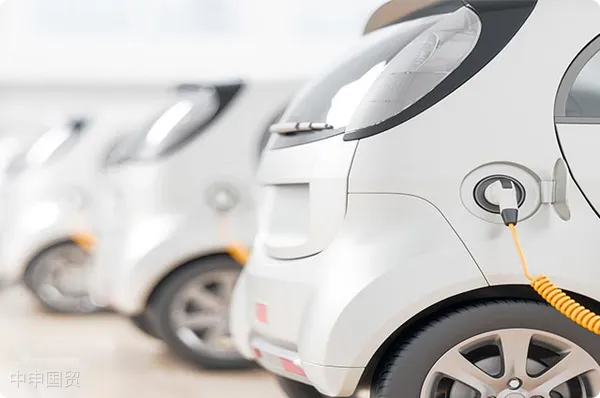- Shanghai Zhongshen International Trade Co., Ltd. - Two decades of trade agency expertise.
- Service Hotline: 139 1787 2118
Starting from July 5, 2024, the European Commission decided to impose provisional countervailing duties on Chinese-made electric vehicles, with rates ranging from 17.4% to 37.6%. This decision has drawn widespread attention and caused significant divisions within the EU.
Detailed Tariff Regulations
The tariff measures primarily target several major Chinese automakers, with BYD facing a 17.4% tariff, Geely 19.9%, and SAIC a high 37.6%. Other producers who cooperated in the Brussels investigation launched in June 2023 will be subject to a 20.8% tariff, while non-cooperative companies will face a 37.6% tariff.
These tariffs are provisional in nature and require confirmation by EU member states in an October decision. If approved, they will remain in effect for five years. Germany opposes the measure and calls for mediation, particularly as China is a crucial export market for its automotive industry. Meanwhile, France, Spain, and Italy are more supportive of the decision.

Germanys Opposition
Germanys opposition stems largely from its automotive industrys reliance on the Chinese market. China is a major export destination for German automakers, with companies like Volkswagen, BMW, and Daimler holding significant market shares there. Since Germanys economy depends on its automotive sector, which in turn relies on China, high tariffs could negatively impact its economy.
The German government has explicitly voiced its opposition, arguing that the tariffs could damage Sino-German trade relations and potentially trigger retaliatory measures from China, further harming Germanys economic interests. Germany hopes to negotiate a resolution to avoid the tariffs.
Divisions Within the EU
Within the EU, there are clear divisions over whether to impose tariffs on Chinese electric vehicles. Germany, France, Spain, and Italy hold differing stances on the issue.
- France: France has long been wary of Chinese cars entering its market, viewing Chinas low-cost EVs as a threat to its domestic automakers. Thus, it supports tariffs to protect its automotive industry.
- Spain and Italy: These countries also lean toward supporting tariffs, citing the need to safeguard their domestic auto manufacturing sectors and jobs.
Under EU decision-making procedures, the tariffs could be blocked if at least 15 member states (representing over 65% of the EU population) vote against them. The outcome remains uncertain, requiring thorough discussions and voting among member states over the next four months.
Chinas Response
Chinas Ministry of Commerce spokesperson He Yadong stated, China will meet halfway, demonstrate sincerity, and engage in countervailing investigation consultations. Consultations should be fact-based and rule-based to reach a mutually acceptable solution as soon as possible. China expressed dissatisfaction with the EUs tariff measures and hopes to resolve the dispute through dialogue and consultation.
Chinas statement indicates its desire to avoid escalating trade tensions through negotiations and to maintain stable economic and trade relations with the EU. China emphasizes that consultations should be fact-based and rule-based to ensure fair treatment of both sides interests.
Future Uncertainties
In the coming months, the EU will further discuss and vote on the tariff measures. Despite Germanys opposition, it remains unclear whether the tariffs can ultimately be blocked. Internal EU divisions will determine the final outcome.
For Chinese automakers, if the tariffs are implemented, they could significantly impact their competitiveness in the European market. Chinese companies must closely monitor developments and prepare countermeasures to adapt to potential market changes.
Overall, the EUs decision to impose tariffs on Chinese EVs marks an escalation in trade friction between China and the EU. Over the next few months, internal EU discussions and Sino-EU consultations will determine the final outcome. Regardless of the result, this event will have far-reaching implications for China-EU trade relations.
Related Recommendations
? 2025. All Rights Reserved. 滬ICP備2023007705號-2  PSB Record: Shanghai No.31011502009912
PSB Record: Shanghai No.31011502009912









